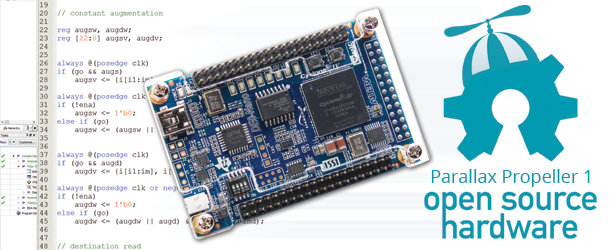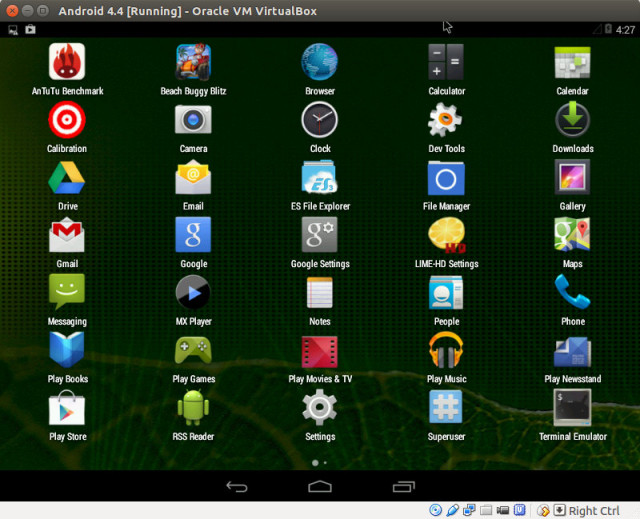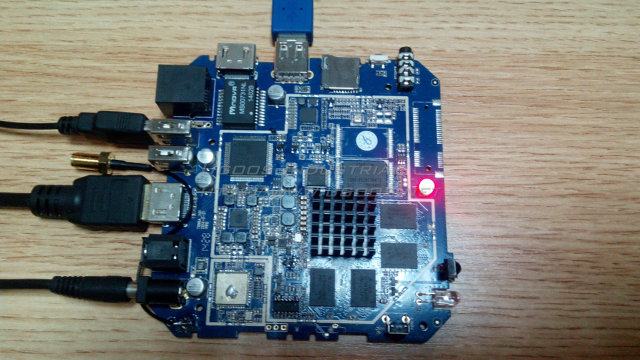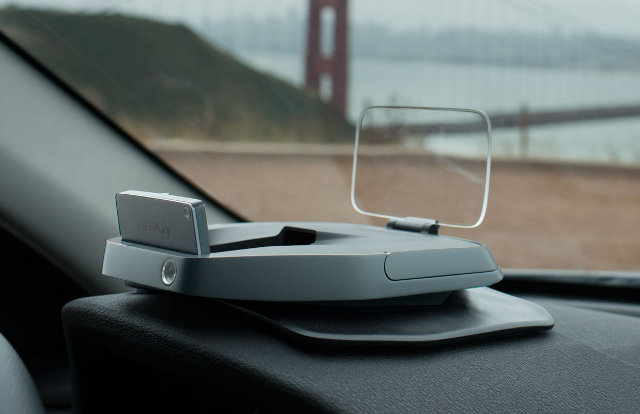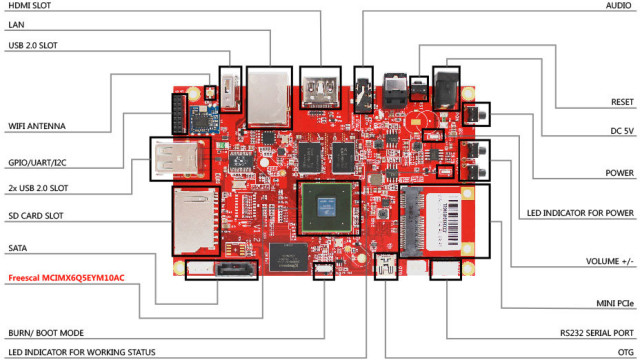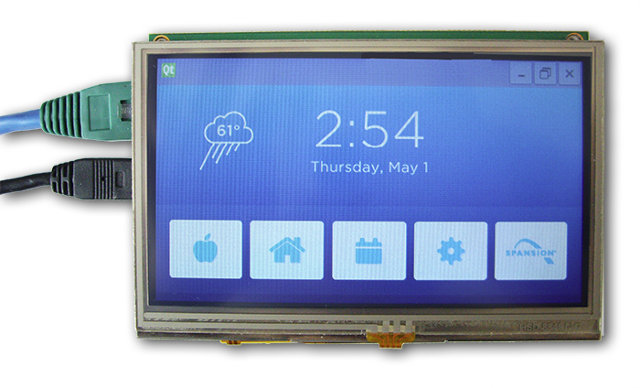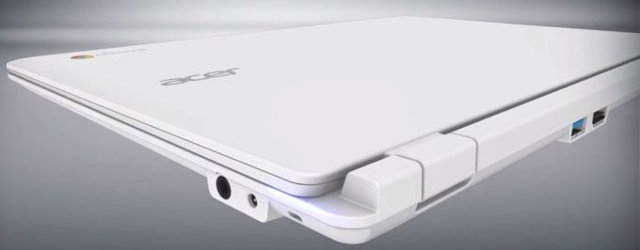Lots of electronics devices are now powered by open source software such as Linux, open source hardware is not as wide-spread, but gaining tracking traction thanks to the like of Arduino, Beagleboard.org, Olimex, and many projects on crowdfunding websites, and now we even start seeing some open source silicon. Existing open source processors include LEON3 (SparkV8) MCU, OpenRisc, and just very recently, LowRISC, based on 64-bit RISC-V instruction set architecture, has been announced with the backing of some of Raspberry Pi co-founders, Google ATAP, etc… and is currently being developed at the University of Cambridge, UK. Parallax Propeller 1 P8X32A is another MCU which has been open sourced last week. Propeller 1 P8X32A had however been released in April 2006, and can be sourced as a 40-pin DIP chip for prototyping, and 44-pin QFP and QFN for production, and come with the following key features: Power Requirements: 3.3 VDC […]
Android-x86 4.4 Stable Released for x86 Computers, Laptops, Netbooks…
There are several methods to run Android in an x86 computer or laptop, but Android-x86 could be one of the best to do that, and the developers have just released the first stable release for Android-x86 4.4 Kitkat. This release includes support for OpenGL ES hardware acceleration for AMD Radeon and Intel graphics, ffmpeg integration to support HD video playback in apps, and more. The file to download is android-x86-4.4-r1.iso, which you can then install on a USB flash drive:
|
1 |
sudo dd if=android-x86-4.4-r1.iso of=/dev/sdX |
where /dev/sdX is the device name of your usb drive. If you are a Windows users you can use Win32DiskImager utility instead. Android should then boot from USB, and you can decide to run it from USB or install it on you hard drive. I haven’t done this, but instead, I’ve created a new Linux 32-bit virtual machine in VirtualBox without internal storage to try it out quickly in […]
Rockchip RK3288 Temperature Testing and Antutu Benchmarks
There are many upcoming Rockchip RK3288 based devices, and in the listing the CPU frequency varies from 1.6 GHz to 2.0 Ghz. so it’s difficult to know exactly what to expect. Ugoos has done some testing with their UT3 board measuring temperature after Antutu benchmark for different CPU clock frequencies and fan/fanless combinations. The board comes with a rather tiny heatsink which may explain some of the results below. They also added a small fan on top in about half the tests to compare the temperature against an heatsink only solution. Without further delays let’s go through the results: Frequency Antutu Score Temperature (heatsink) Temperature (Back of PCB) Heatsink only Heatsink + fan Heatsink only Heatsink + fan 1.608 GHz 38655 67 °C N/A 70 °C N/A 1.704 GHz 39853 72 °C 50 °C 75 °C 60 °C 1.800 GHz 41440 83 °C 52 °C 85 °C 62 °C 1.920 […]
Navdy is an Android Head Up Display for your Car Controlled by Voice and Gestures
Following up on yesterday’s Android rear view mirrors (ARVM), where I and others mentioned safety of such devices in comments, it has been brought to my attention that there’s a possibly safer alternative with Navdy, a 5.1″ Head-Up Display (HUD) running Android 4.4, that’s placed right in front of your eyes on the top of the dashboard, and coming with both common and different features compared to ARVM. Navdy’s preliminary specifications: Processor – Unnamed dual core processor System Memory – N/A Storage – N/A Display – 5.1″ wide transparent Head-Up Display (HUD) with high quality projector Camera – IR camera for touchless gesture control Connectivity – WiFi (802.11 b/g/n), Bluetooth 4.0/LE Sensors – Accelerometer, e-compass, ambient light sensor Audio – Via Bluetooth or 3.5mm minijack mini-USB port, Internal speaker and microphone with noise canceling DSP Data / Power interface – OBD-II power and data connection to car computer, with optional […]
Android Rear View Mirrors Feature Dual Cameras for DVR Function, GPS, Bluetooth, and More
I first heard about Android rear view mirrors back in 2012 with a solution designed by Huawei running Android 2.3. But this morning, DealExtreme listed three Android rear view mirrors, with model names like EL-H100, EL-H200, and EL-H800 selling between $120 to $216 depending on the features. The mirrors feature 4.3″ to 5″ displays, and all come with dual camera support, run Android 4.0, and seem powered by AllWinner A10 or A13 ARM Cortex A8 processor, with the most expensive (EL-H800) also supporting Bluetooth and GPS. One model also support IR night vision (EL-H100). Features and specifications for EL-H800 model are listed as follows: SoC – AllWinner A13 ARM Cortex A8 @ 1.2GHz with Mali-400 GPU System Memory – 512MB DDR3 Storage – 8GB flash and micro SD slot up to 32GB Display – 5″ TFT Touch Screen, 800×480 resolution Connectivity – Wi-Fi and Bluetooth earphone support, FM radio Video […]
OpenELEC Ported to TBS 2910 Matrix Board Supports DVB T/S/C, DVR and IPTV Server Functions
TBS 2910 Matrix, also simply called TBS Matrix, is a board powered by Freescale i.MX6 Quad SoC with 2GB RAM, 16 GB eMMC, and supporting various TBS USB DVB tuners. The company provides images for Ubuntu, Android, and something called Matrix TV. The company also releases the source code for the boards, and two OpenELEC developers, namely Ovi and Vpeter, though it could be a nice idea to port OpenELEC to TBS Matrix, and that’s exactly what they did. The video demo below shows online video streaming via 1channels add-on, which can be done with any Android or Linux media player running XBMC or OpenELEC, but the second part is more interesting, as it shows Live TV from a Cable TV USB tuner connected to the board. Ovi also confirmed the system supports DVR, and you can also use the board as a micro IPTV server. DVR function is supported […]
Emcraft Systems Introduces IoT Devkit with LCD Display Powered by Freescale Vybrid VF6 SoC
Emcraft Systems has launched a IoT development kit based on on their Freescale Vybrid VF6 SoM featuring MVF61 SoC with a Cortex A5 MPU and a Cortex M4 MCU, and connected to a baseboard (IOT-BSB-EXT) with various connectors (USB, Ethernet, …) as well as a 4.3″ LCD (480×272 resolution) with touchscreen. The kit targets IoT gateway applications where a GUI (Graphical User Interface) and/or HMI (Human Machine Interface) are required. Vybrid IoT devkit specifications: SoC/Memory/Storage – Via Vybrid VF6 SoM with Freescale MVF61NN151CMK50 (No Security), or Freescale MVF61NS151CMK50 (with Security), 128 MB DDR3, Up to 512 MB NAND Flash, and 32 MBytes dual QSPI Flash Storage on Baseboard – micro SD card slot Display – 4.3″ 480×272 LCD with touch panel connected to the back side of the baseboard. Connectivity – 10/100M Ethernet USB – 2x micro USB OTG ports, 1x micro USB for debugging and/or power Debugging – 20-pin […]
Acer CB5 Chromebook To Feature Nvidia Tegra K1 Processor, 13 Hours of Battery Life
It seems Nvidia Tegra K1 is getting in more hardware than its predessors. It can not only be found in Jetson TK1 development board and Shield tablet developed by the company, but also products such as Xiaomi MiPad, as well as Google Tango Project Tablet devkit. Acer CB5 Chromebook should also launch very soon with Tegra K1 quad core processor, a 13.3″ display, and the company claims it should last 13 hours based on Google’s power_loadtest. Preliminary specs for Acer CB5 Chromebook: SoC- Nvidia Tegra K1 quad core Cortex A15 @ 2.1 GHz with Kepler GPU System Memory – 2 to 4 GB DDR3 Storage – 16 / 32 GB flash Display – 13.3″ display with 1366×768 or 1920×1080 resolution (TBC) depending on model, and optional touchscreen support Video Output – HDMI Audio – 3.5mm audio jack, speakers Connectivity – 802.11 b/g/n/ac Wi-Fi USB – 2x USB 3.0 ports, 1x […]


